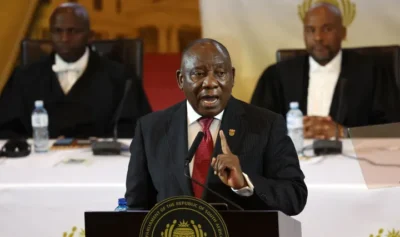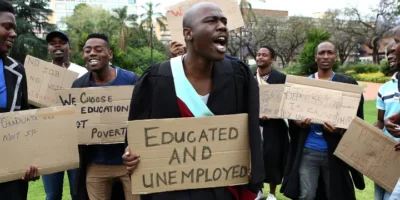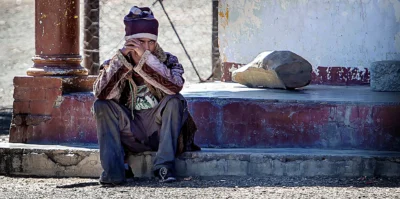President Ramaphosa’s State of the Nation Address faces youth backlash
President Cyril Ramaphosa’s recent State of the Nation Address (Sona) on Thursday, 8 February, has ignited a wave of criticism and disappointment among young South Africans.
While the president aimed to showcase the success story of Tintswalo as a symbol of progress under the ANC-led government, many youth activists argue that his narrative is detached from the realities faced by the majority of young people today.

President Cyril Ramaphosa delivers the 2024 State of the Nation address at Cape Town City Hall on 8 February 2024.
State of the Nation Address and backlash
President Ramaphosa, in his State of the Nation Address, spoke about Tintswalo, a young woman born in 1994,to show the positive impact of ANC policies.
He outlined her upbringing in an RDP house, access to education, healthcare, and employment opportunities, portraying her life as a testament to the success of government initiatives.
However, anti-racism activist Zulaikha Patel and other young critics argue that this narrative does not accurately reflect the challenges faced by many young South Africans.
“I’ve listened to the State of the Nation Address for multiple years, and each year, the speech remains the same, and the structuring of the speech remains the same.”
“Each year we listen to the successes of the government, successes which are painted through the lens of the one delivering the speech but are not highlighted through the lens of people on the ground.”

Unemployed graduates from KwaZulu-Natal and Pretoria march on the Union Buildings in Pretoria to hand over a memorandum to officials demanding that the government find solutions to rising unemployment.
Patel emphasised that many communities still lack access to basics like water and electricity, challenging the president’s optimistic portrayal of progress.
“The examples he gives are totally divorced from the reality of the young black majority born at the dawn of democracy.”
Journalist Ayanda Sishi Wigzell criticized the use of a fictional character to illustrate progress, calling it an insult to those grappling with real issues.
“Using a figment of their imagination to paint a good story of South Africa in the form of Tintswalo is an insult to poor people.”
“It’s an insult to people who have no bootstraps to pick themselves up because of the corruption of the elites in power.”
Despite acknowledging the strides made since 1994, activists like Ekta Somera and Nuraan Mitchell expressed disappointment at the lack of tangible solutions for youth unemployment and insufficient support systems.

Youth activists across South Africa argue that President Cyril Ramaphosa’s Tintswalo made in the State of the Nation Address analogy ignores the challenges faced by the youth in education, employment and access to basic services.
The sentiments echoed by these young voices suggest a growing discontent with the government’s handling of critical issues affecting the youth.
“The future of our country is rooted in the many young people who long to develop their skills, secure a job and earn an income, yet they remain unemployed despite the government’s attempts to address this challenge.”
Zulaikha Patel emphasised the need for the Sona to become more solution- and accountability-oriented.
She called for a discussion on the government’s failures over the past 30 years and a commitment to addressing these shortcomings.
The youth, facing financial constraints, lack of resources, and limited opportunities, demand a more realistic and action-oriented approach from the government.
“The Sona needs to become more solutions- and accountability-oriented instead of just highlighting the government’s successes.”
“I believe for the government actually to be successful, it needs to be accountable for its failures.”
“I want to hear more accountability for failures of the past 30 years and accountability in terms of addressing those failures.”
“I want to hear solutions because you can’t just have accountability. Accountability needs to coexist with solutions.”
Also Read: Minister Naledi Pandor’s security beefed up. See what happened
